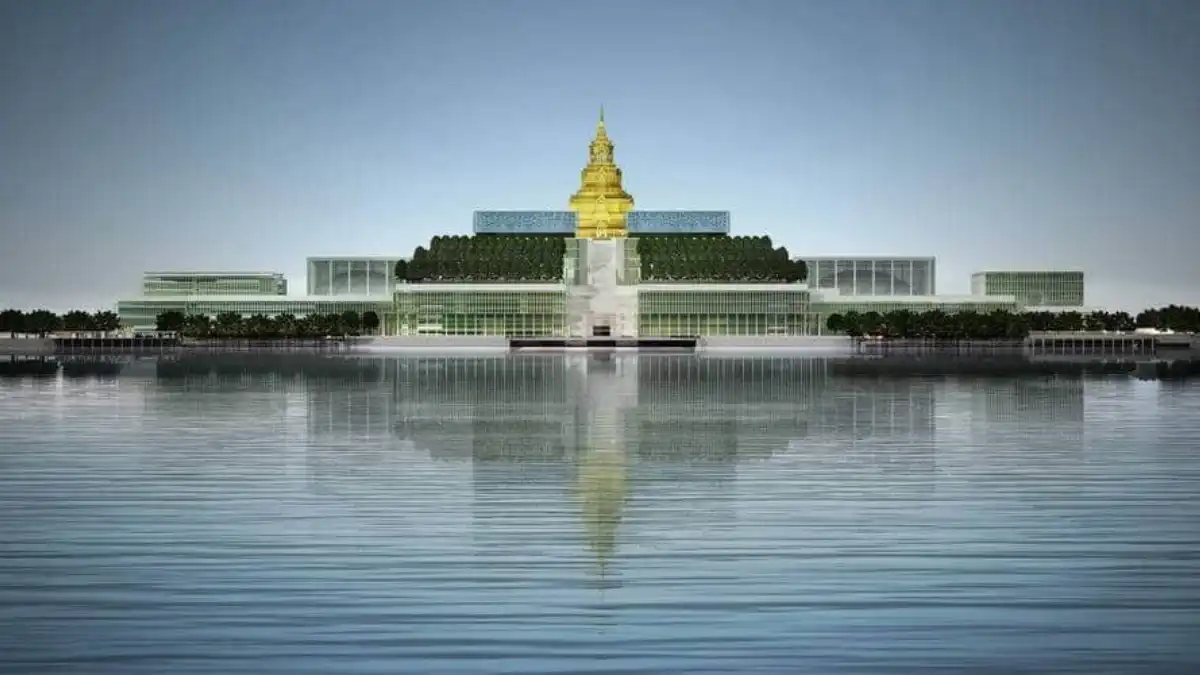Thailand’s fiscal roadmap for 2026 is under intense scrutiny as the House of Representatives convenes a special three-day session to debate the second and third readings of the 3.78-trillion-baht (~US$106 billion) Budget Bill. With the Senate set to review the draft on August 25-26, concerns linger over potential delays, though key figures in the Upper House have dismissed speculation of a outright rejection that could jeopardize economic recovery.
Senate’s Role: Observations Over Obstruction
Thai Senator Alongkot Worakee, deputy chair of the Senate’s Ad-Hoc Committee on the 2026 Budget Bill, moved to allay fears of legislative gridlock on Tuesday. Emphasizing the Senate’s limited role, he underscored that the Upper House is tasked with offering observations rather than making direct amendments. “We can make observations, but we should not delay its passage. Given the current economic situation, the faster the funds are approved, the faster they can be disbursed,” he stated on August 20, 2025.
The senator’s remarks come amid heightened public and political attention on the bill, which is seen as a critical tool for stimulating Thailand’s economy. A rejection by the Senate would not only stall disbursements but also risk undermining investor confidence at a time when the country faces sluggish growth and regional uncertainties. Senator Alongkot explicitly dismissed the notion of voting down the legislation, arguing that such a move would harm national interests.
Budget Cuts and Reallocations: A Balancing Act
The draft bill, which passed its first reading on May 31 with 322 votes in favor and 158 against, has undergone significant revisions by an ad-hoc committee chaired by Deputy Prime Minister and Finance Minister Pichai Chunhavajira. The committee proposed cuts totaling 8.92 billion baht (~US$250 million) across various ministries, reflecting a cautious approach to fiscal management.
The largest reductions targeted the Interior Ministry, with a cut of 2.148 billion baht (~US$60 million), followed by parliament at 880 million baht (~US$25 million), the Transport Ministry at 795 million baht (~US$22 million), the Public Health Ministry at 693 million baht (~US$19 million), and the Natural Resources and Environment Ministry at 459 million baht (~US$13 million). These reductions, while substantial, were not left unaddressed; 8.69 billion baht (~US$244 million) of the trimmed funds were redirected to priority initiatives and agencies.
Among the notable reallocations, state enterprises received 4.914 billion baht (~US$138 million) for land acquisition and construction related to the Orange Line, a key infrastructure project aimed at easing Bangkok’s chronic traffic congestion. The Finance Ministry was allocated 1.568 billion baht (~US$44 million) to host the 2026 World Bank and International Monetary Fund annual meetings, an event expected to spotlight Thailand on the global stage. Additionally, 1 billion baht (~US$28 million) each was directed to the central budget for emergency aid and to the Labour Ministry for contributions to the Social Security Fund, signaling a focus on social safety nets amid economic uncertainty.
House Deliberations: Political Tensions Surface
As the House of Representatives began deliberations on Wednesday, Chief Government Whip Visuth Chainaroon expressed confidence in maintaining a quorum and concluding the debates within the allotted timeframe. His optimism reflects the government’s determination to push the bill through by the third day of the session, ensuring timely passage to the Senate.
However, the debates are unlikely to be without contention. Opposition Members of Parliament (MPs) are expected to seize the opportunity to address broader political grievances, including recent Thai-Cambodian border clashes. The military’s budget allocation, in particular, is anticipated to draw sharp scrutiny, as lawmakers question the balance between defense spending and domestic priorities. While the border issue remains a sensitive topic, the government appears focused on keeping the budget discussion on track, wary of derailing a process critical to economic stability.
Economic Context: Why the Budget Matters
Thailand’s economy has faced persistent challenges in recent years, grappling with the lingering effects of the COVID-19 pandemic, global supply chain disruptions, and fluctuating tourist arrivals—a key revenue driver. The 3.78-trillion-baht budget for fiscal 2026 represents a significant injection of funds aimed at spurring growth, supporting infrastructure development, and bolstering social welfare programs. Delays in its approval could exacerbate existing economic pressures, stalling projects and dampening public confidence.
The reallocations within the budget reflect a strategic effort to address both immediate needs and long-term goals. The substantial investment in the Orange Line, for instance, underscores the government’s commitment to urban development and connectivity, which could yield economic dividends by improving productivity in the capital. Similarly, funding for the World Bank and IMF meetings positions Thailand as a regional financial hub, potentially attracting foreign investment and partnerships.
Yet, the cuts to ministries like Public Health and Natural Resources raise questions about the government’s priorities. Critics argue that reducing health funding at a time when public services remain strained could have long-term consequences, particularly in rural areas where access to care is already limited. Environmental advocates, meanwhile, lament the diminished allocation for natural resources, viewing it as a missed opportunity to address pressing issues like deforestation and pollution in the kingdom.
Regional and Political Implications
The Budget Bill’s passage carries implications beyond economics, intersecting with Thailand’s complex political landscape. The country has experienced years of political turbulence, marked by coups, protests, and shifting coalitions. While the current administration under Prime Minister Srettha Thavisin has sought to project stability, opposition voices remain vocal, often using fiscal debates as a platform to challenge government policies.
The Thai-Cambodian border clashes, though not directly tied to the budget, add another layer of complexity. Opposition MPs may leverage the issue to question military spending, potentially igniting debates over national security versus domestic investment. The government, aware of these dynamics, appears intent on navigating the deliberations with minimal disruption, prioritizing the bill’s swift progression to the Senate.
Senate Review: A Final Hurdle
With the Senate’s review scheduled for August 25-26, all eyes will be on whether the Upper House adheres to its advisory role or pushes for significant changes through its observations. While Senator Alongkot’s assurances suggest a cooperative stance, the Senate’s history of political alignment with conservative interests means that unexpected resistance cannot be entirely ruled out.
The Senate’s limited mandate—offering observations rather than amendments—provides a safeguard against drastic alterations. However, even non-binding recommendations can influence public perception and pressure the House to revisit certain allocations. For now, the government remains focused on maintaining momentum, with key figures like Visuth Chainaroon emphasizing the need for timely approval.
Looking Ahead: Economic Recovery at Stake
As Thailand stands at a critical juncture, the 2026 Budget Bill represents more than a fiscal document; it is a test of the government’s ability to balance competing priorities while steering the nation toward recovery. The proposed cuts and reallocations, though contentious in parts, reflect a pragmatic approach to addressing immediate economic needs and positioning Thailand for future growth.
Yet, uncertainties remain. Will the Senate’s observations introduce new complications, or will the bill clear its final legislative hurdle without incident? How will opposition critiques during the House debates shape public discourse around the budget? And, most crucially, can the timely disbursement of these funds deliver the economic stimulus Thailand so urgently needs?
As the legislative process unfolds, the stakes could not be higher. For a nation eager to reclaim its footing in a post-pandemic world, the coming days will offer a glimpse into whether fiscal policy can indeed pave the way for a brighter future.















